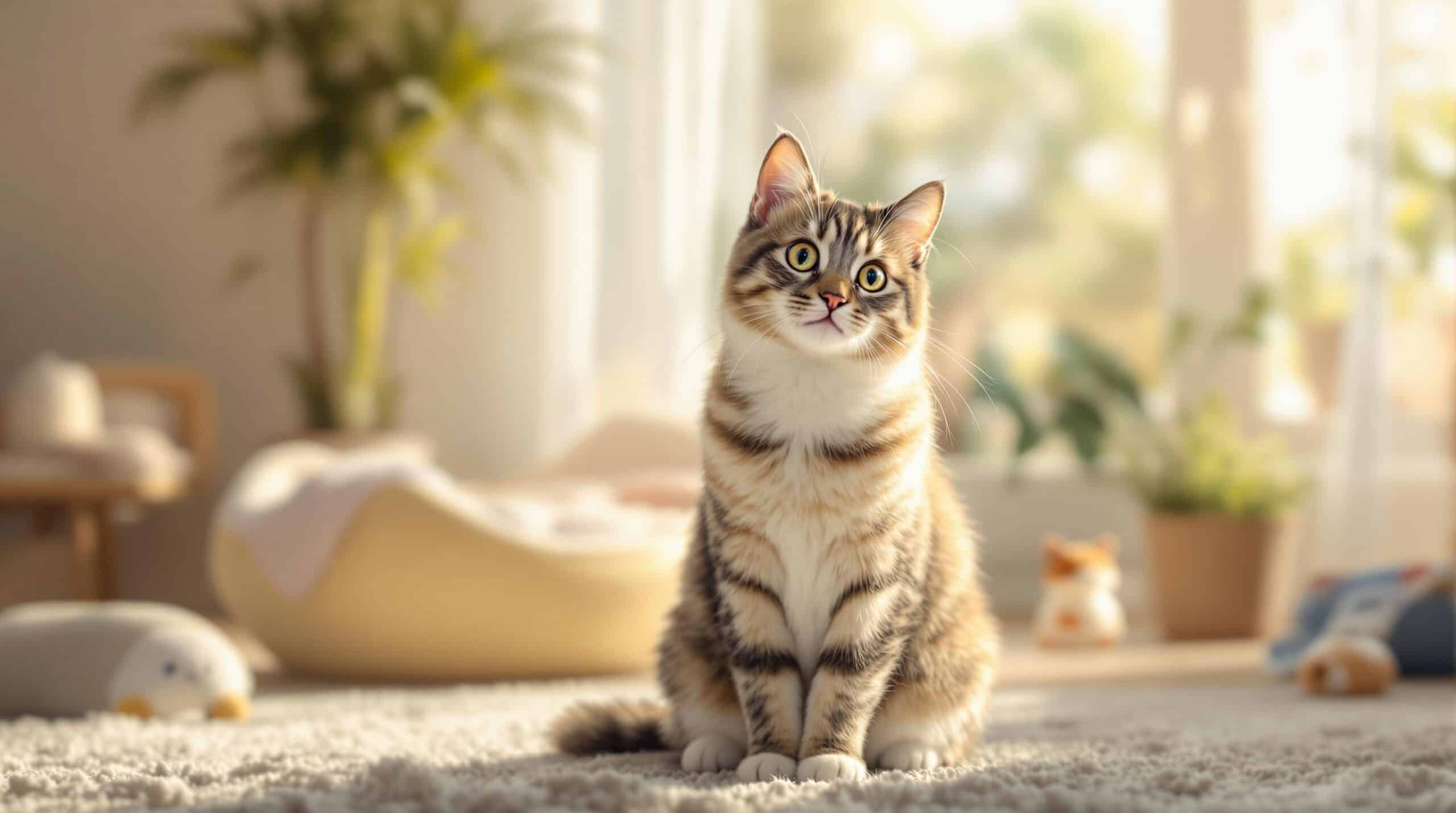Cats get covid, and this article will provide you with the latest information on whether cats can contract COVID-19, the symptoms to watch for, and how to protect your feline friend. By understanding the risks and taking proactive steps, you can keep your cat safe and happy during the pandemic.
Can Cats Get COVID-19?
Many cat owners are concerned about the possibility of their feline friends contracting COVID-19. The good news is that while cats can indeed get covid, the risk is relatively low. However, it’s important to stay informed and take necessary precautions.
Scientific Evidence
Scientific studies have shown that cats can get covid. Research conducted by the Centers for Disease Control and Prevention (CDC) and other organizations has confirmed that cats are susceptible to the virus. However, the number of reported cases in cats is relatively low compared to humans.
The virus can cause mild to moderate symptoms in cats, but severe cases are rare. The primary concern is the potential for cats to transmit the virus to other animals or humans, although this risk is also low.
Transmission from Humans to Cats
The main route of transmission of the coronavirus from humans to cats is through close contact. If a person infected with COVID-19 comes into close contact with their cat, there is a possibility that the cat could become infected. This is why it’s crucial for cat owners to take steps to minimize exposure.
It’s important to note that while cats can get covid from humans, the reverse is less likely. The risk of cats transmitting the virus back to humans is minimal, but it’s still a good idea to practice good hygiene and limit close contact with your cat if you are sick.
Symptoms of COVID-19 in Cats
Understanding the symptoms of COVID-19 in cats is crucial for early detection and treatment. While the symptoms in cats can vary, they are generally similar to those seen in humans.
Common Symptoms
The common symptoms of COVID-19 in cats include:
- Fever
- Coughing
- Difficulty breathing
- Lethargy
- Loss of appetite
- Runny nose or eyes
If you notice any of these symptoms in your cat, it’s important to seek veterinary care promptly. Early diagnosis and treatment can significantly improve the outcome for your feline friend.
Differentiating from Other Illnesses
It’s important to differentiate the symptoms of COVID-19 in cats from other common illnesses. Some of the symptoms, such as fever and coughing, can also be indicative of other respiratory conditions like feline herpesvirus or feline calicivirus.
To accurately diagnose the cause of your cat’s symptoms, a veterinarian will likely perform a physical examination and may recommend additional tests, such as a PCR test for the coronavirus. This can help rule out other potential causes and ensure that your cat receives the appropriate treatment.
Protecting Your Cat from COVID-19
Taking proactive steps to protect your cat from COVID-19 is essential. While the risk of cats getting covid is low, it’s still important to follow best practices to minimize the risk of infection.
Hygiene Practices
Implementing good hygiene practices is one of the most effective ways to protect your cat from COVID-19. This includes:
- Washing your hands thoroughly with soap and water before and after handling your cat
- Wearing a mask if you are sick and need to care for your cat
- Disinfecting surfaces and objects that your cat frequently comes into contact with
- Avoiding close contact with your cat if you are infected with the virus
By following these simple hygiene practices, you can significantly reduce the risk of transmission from humans to cats.
Minimizing Exposure
Minimizing your cat’s exposure to the virus is another crucial step in protecting your feline friend. This can be achieved by:
- Limiting your cat’s contact with people outside your household, especially those who may be sick
- Keeping your cat indoors to reduce the risk of exposure to infected animals or humans
- Avoiding public places where your cat may come into contact with other animals or people
- Regularly cleaning and disinfecting your home to reduce the presence of the virus
By taking these precautions, you can create a safer environment for your cat and reduce the risk of infection.
Treatment and Care for Cats with COVID-19
If your cat does contract COVID-19, it’s important to know the available treatment options and how to provide the best care for your feline friend.
Veterinary Care
Seeking veterinary care is the first and most important step if you suspect that your cat has COVID-19. A veterinarian will be able to perform a thorough examination and recommend the appropriate treatment based on your cat’s symptoms and overall health.
Treatment options for cats with COVID-19 may include:
- Supportive care, such as fluid therapy and oxygen support
- Medications to manage symptoms, such as anti-inflammatory drugs or antiviral medications
- Monitoring and follow-up appointments to track your cat’s progress
It’s important to follow your veterinarian’s advice and provide the necessary care to help your cat recover.
Home Remedies
In addition to veterinary care, there are several home remedies that can help support your cat’s recovery from COVID-19. These include:
- Providing a comfortable and quiet environment for your cat to rest
- Ensuring that your cat has access to fresh water and a nutritious diet
- Monitoring your cat’s temperature and symptoms regularly
- Using a humidifier to help ease breathing difficulties
- Administering any prescribed medications as directed by your veterinarian
By combining veterinary care with these home remedies, you can help your cat recover more quickly and comfortably.
Popular Quote
“A cat has absolute emotional honesty; human beings, for one reason or another, may hide their feelings, but a cat does not.” — Ernest Hemingway
Statistical Fact
According to the World Health Organization (WHO), as of 2023, the number of confirmed cases of COVID-19 in cats is less than 1% of the total human cases. While this statistic is reassuring, it is important to remain vigilant and take necessary precautions to protect your feline friend. (Source: WHO, 2023)
Three Tips for Protecting Your Cat from COVID-19
- Regular Vet Check-ups: Schedule regular veterinary check-ups to monitor your cat’s health and catch any potential issues early.
- Hygiene Practices: Maintain good hygiene practices, such as washing your hands before and after handling your cat, and disinfecting surfaces regularly.
- Limit Exposure: Keep your cat indoors and limit their contact with people outside your household, especially those who may be sick.
Popular Questions About Cats and COVID-19
- Can cats transmit COVID-19 to humans? While the risk is low, it is still possible for cats to transmit the virus to humans. Practicing good hygiene and limiting close contact can help reduce this risk.
- What should I do if my cat shows symptoms of COVID-19? If your cat exhibits symptoms such as fever, coughing, or difficulty breathing, contact your veterinarian immediately for a proper diagnosis and treatment.
- Can I still pet my cat if I have COVID-19? It is best to avoid close contact with your cat if you are infected with the virus. If you must care for your cat, wear a mask and wash your hands thoroughly before and after handling them.
- Are there any vaccines for cats against COVID-19? Currently, there are no vaccines specifically approved for cats to protect against COVID-19. However, following preventive measures and seeking veterinary care can help keep your cat safe.
Final Thoughts About Cats Get COVID
In conclusion, while cats can get COVID-19, understanding the symptoms, taking preventive measures, and seeking timely veterinary care can help ensure your cat remains healthy. Stay informed and proactive to protect your feline friend during the pandemic. For more information and to explore our range of cat-themed gifts, visit our website or follow us on Facebook and Instagram.
If you have any questions or need further assistance, feel free to contact us at info@catkarmacreations.com or call us at (800) 343-1604. We are here to support you and your feline family members.
| Feature | Cats | Dogs | Birds |
|---|---|---|---|
| Symptoms | Fever, coughing, difficulty breathing | Coughing, sneezing, lethargy | Respiratory distress, lethargy, loss of appetite |
| Transmission | Human to cat, cat to cat | Human to dog, dog to dog | Human to bird, bird to bird |
| Prevention | Regular vet check-ups, hygiene practices | Regular vet check-ups, hygiene practices | Regular vet check-ups, hygiene practices |
- Understand the symptoms of COVID-19 in cats and how they differ from other illnesses.
- Implement hygiene practices to minimize the risk of transmission from humans to cats.
- Monitor your cat’s health regularly and seek veterinary care if symptoms appear.
- Create a safe and comfortable environment for your cat during the pandemic.
- Stay informed about the latest developments in cat health and COVID-19.
- Consider vaccination options and other preventive measures to protect your cat.















